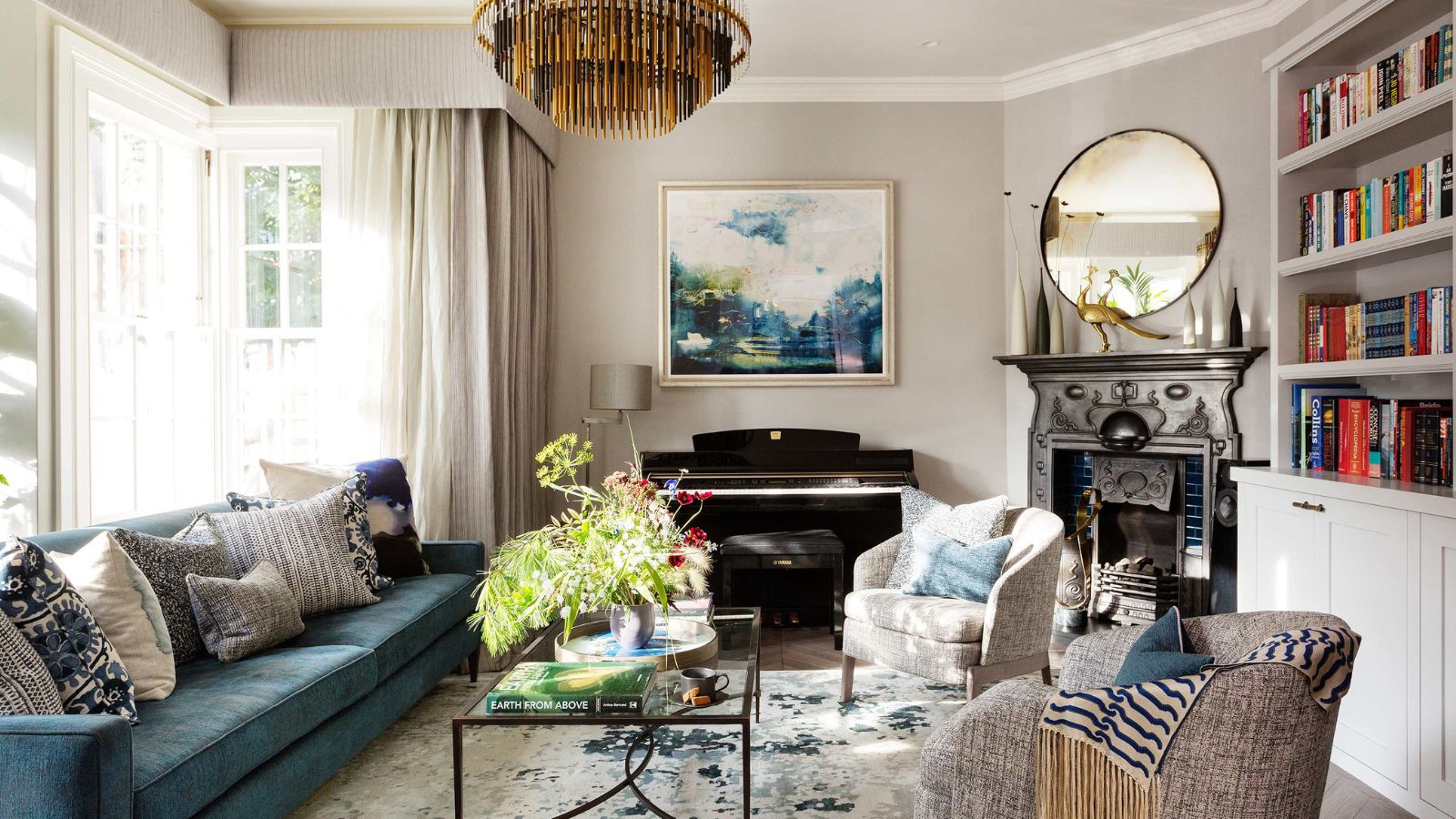
Living rooms are one of the most used areas in any home. They are the go-to place for relaxing, socializing and entertaining friends and family. But do you have any idea what orientation it is and what colors will work best?
One of the first steps of planning a living room makeover should be figuring out whether it’s north, south, east or west facing (you can easily do this using a compass app on your phone). This will then determine how much natural light your space has access to and will dictate which living room colors and tones will work best in the space.
We talk to the experts who let us know how we should best go about designing our living rooms with orientation in mind.
The best colors for your living room, depending on orientation
‘Whether a living room is bathed in natural light or has vastly changing light throughout the course of the day, the orientation of this room should be considered separately to ensure that you pick a shade that compliments it', explains Ruth Mottershead, Creative Director of Little Greene.
We've outlined below some of the best color choices you can make depending on the direction your living room faces.
1. North-facing living rooms
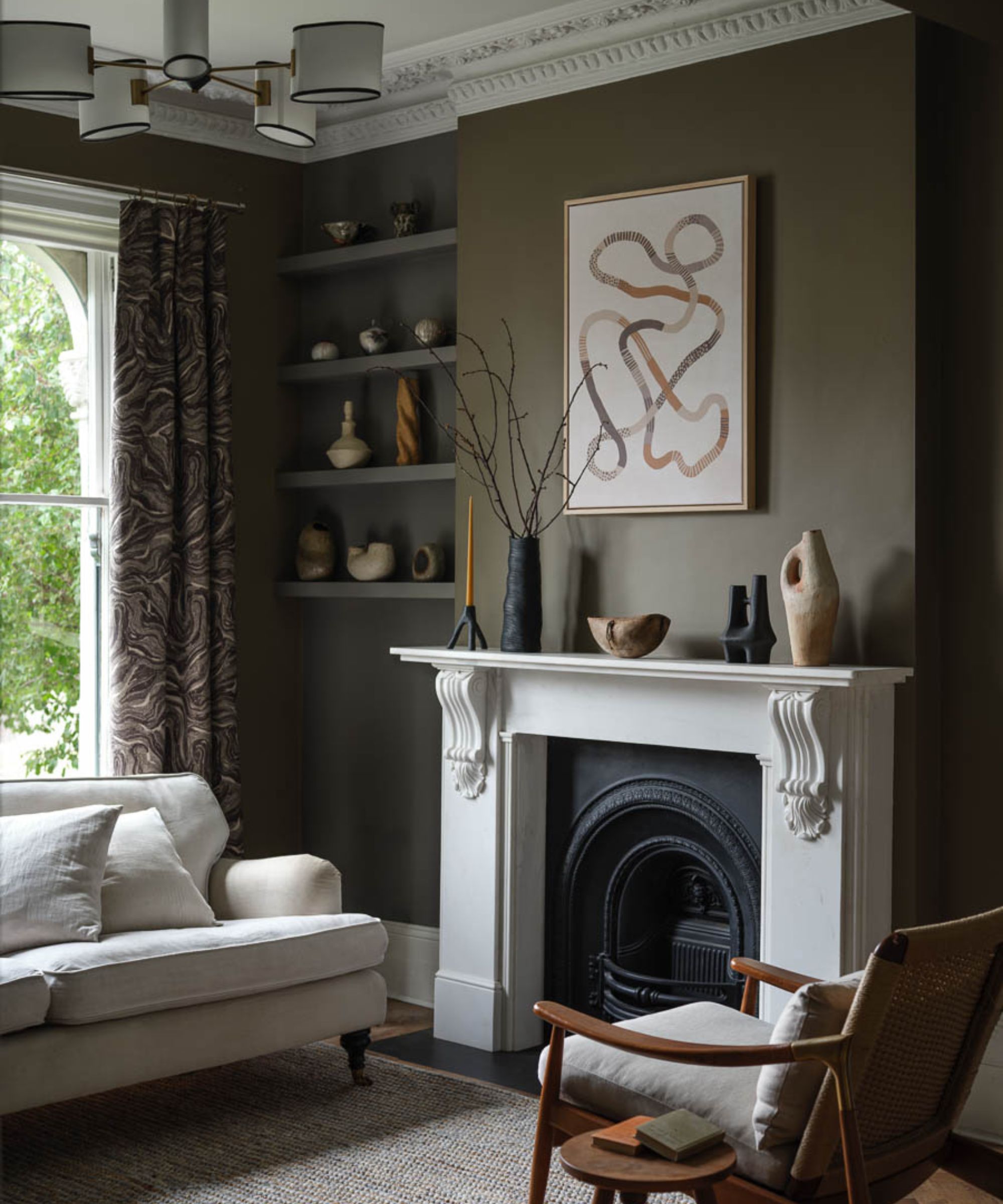
North facing rooms can often be seen as a negative due to them not having as much natural light available. However, this can be a real plus point for a living room if you want to make it feel warm and cozy.
‘North facing rooms can often feel colder, so it’s important to really consider the size of the living room before choosing a paint color. Smaller, cozy living rooms lend themselves to a strong color palette, especially when they don’t benefit from a huge amount of natural light,' explains Helen Shaw, Director of Marketing at Benjamin Moore.
Helen goes on to say ‘North facing rooms work best with colors that have a warm undertone. The green in a gray-green shade will lift the overall effect and add much needed warmth. If you’re going for a white paint, make sure it has a yellow or red undertone to create a soft, rather than harsh, glow.’
Due to the lack of direct sunlight, it’s best to think about how you can counteract this. Ruth Mottershead suggests, ‘Injecting warmth by harmonious light neutral with a warm base tone such as ‘Rolling Fog’ or ‘Travertine’. Deeper tones work well in north-facing spaces too and can be used to create a warm and intimate space'.
2. South-facing living rooms
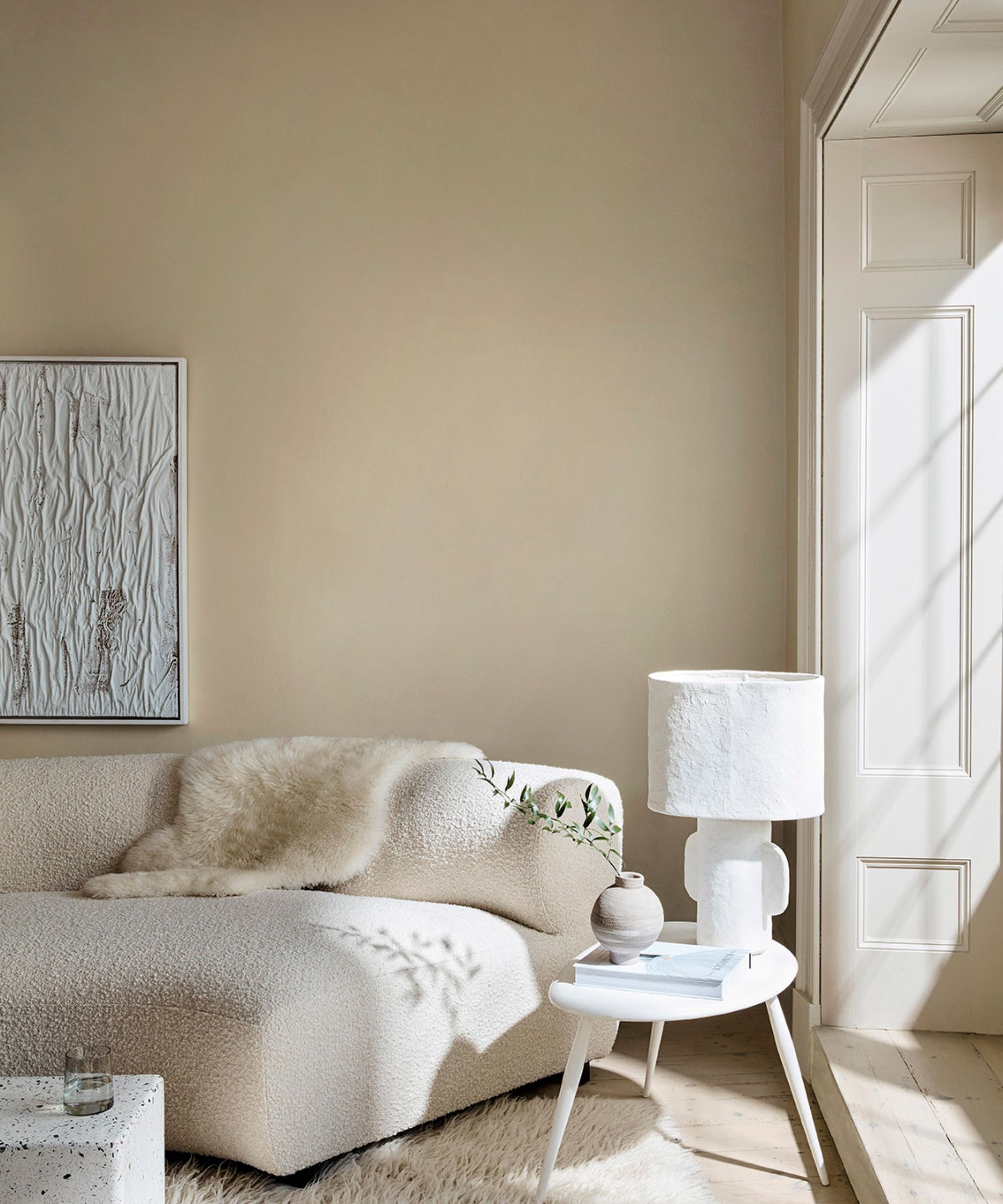
South-facing rooms are undoubtedly the most desirable as they are flooded with natural light. However, if you'd rather have a space that feels a little cozier you can still create this with clever color techniques.
You may initially think that soft neutrals are a winning pairing for a south-facing room however Helen suggests otherwise. ‘South facing living rooms that benefit from lots of sunlight can overwhelm soft neutrals, especially when they are paired with bold, saturated hues. We recommend keeping a south facing room light and bright, layering together soft blush tones, sage greens, and taupe shades to maintain the airy feeling’.
Ayten Nadeau, Founder of i-TEN Designs agrees and says ‘For south-facing living rooms, keep cool with soft blues and grays to mellow out the intense sunlight’. There’s no doubt that whites also work well in south-facing rooms if you’re wanting that clean and fresh feel but just make sure you’re conscious of the specific undertones.
‘Decorator’s White is a great choice as it contains a little gray which creates an off-white option that doesn’t lean in any particular color tone while still feeling soft’, advises Helen Shaw.
3. East-facing living rooms
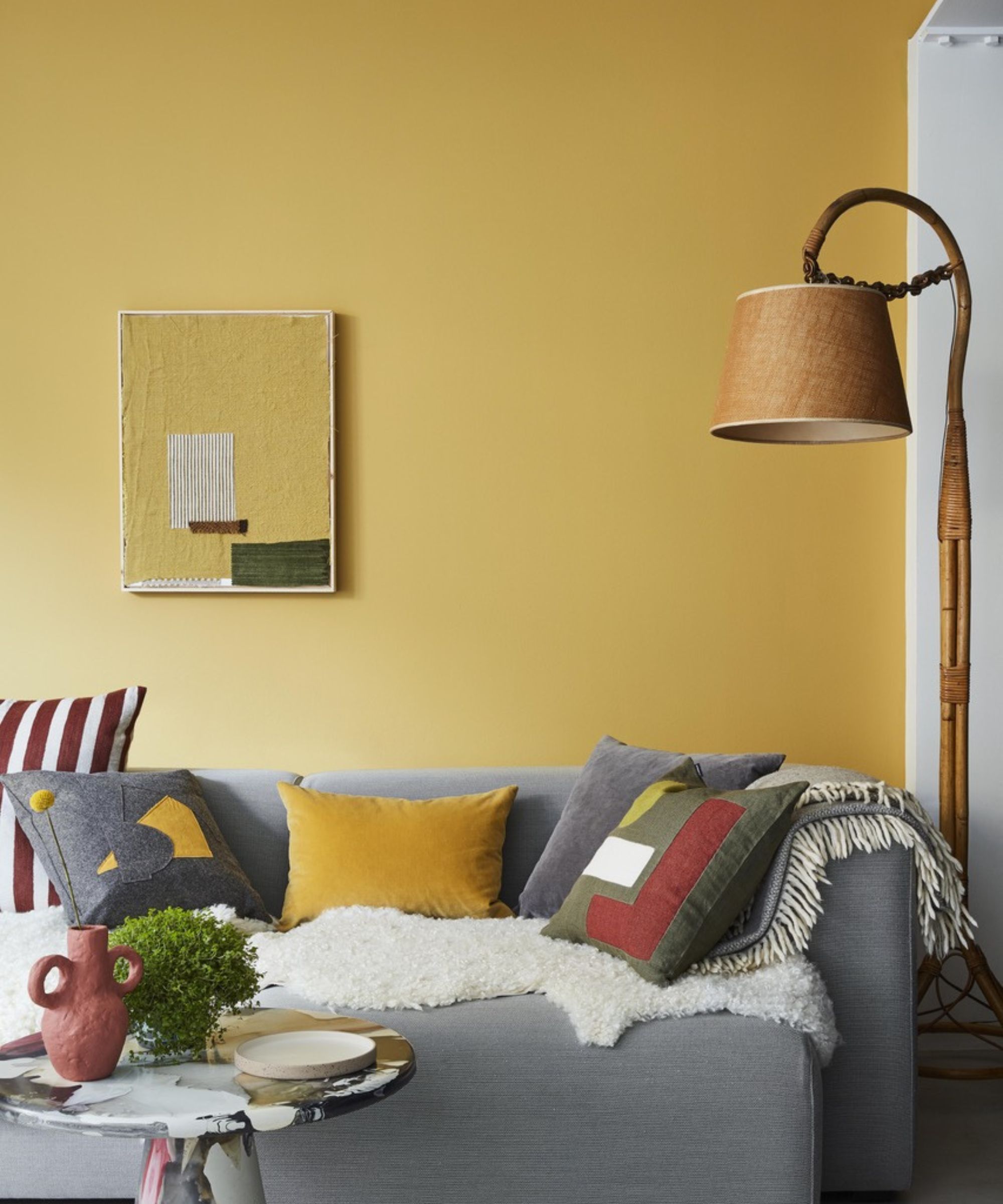
East and west facing rooms are a little more tricky to determine what particular colors work best as the light changes throughout the day.
‘East facing rooms will be filled with light in the morning and darker in the evening when there is less natural light, so perhaps here it is worth embracing a snug-like feel with deeper shades that feel cocooning and cozy’, advises Caroline Milns, Head of Interior Design at Zulufish.
Alternatively, you could decide to embrace the morning sun and make it truly pop by picking something a little more vibrant. ‘Welcome the morning sun with a cup of coffee, warm pink, and light yellows for a cozy and inviting vibe’, suggests Ayten.
It’s totally up to you what type of ambiance you want to create with your choice of paint color. You can either embrace the morning light and choose a colorful shade that feels energetic and uplifting or conversely, lean towards a moodier and cozier vibe that you’ll get in the evening with a deeper shade such as navy or dark green.
4. West-facing living rooms
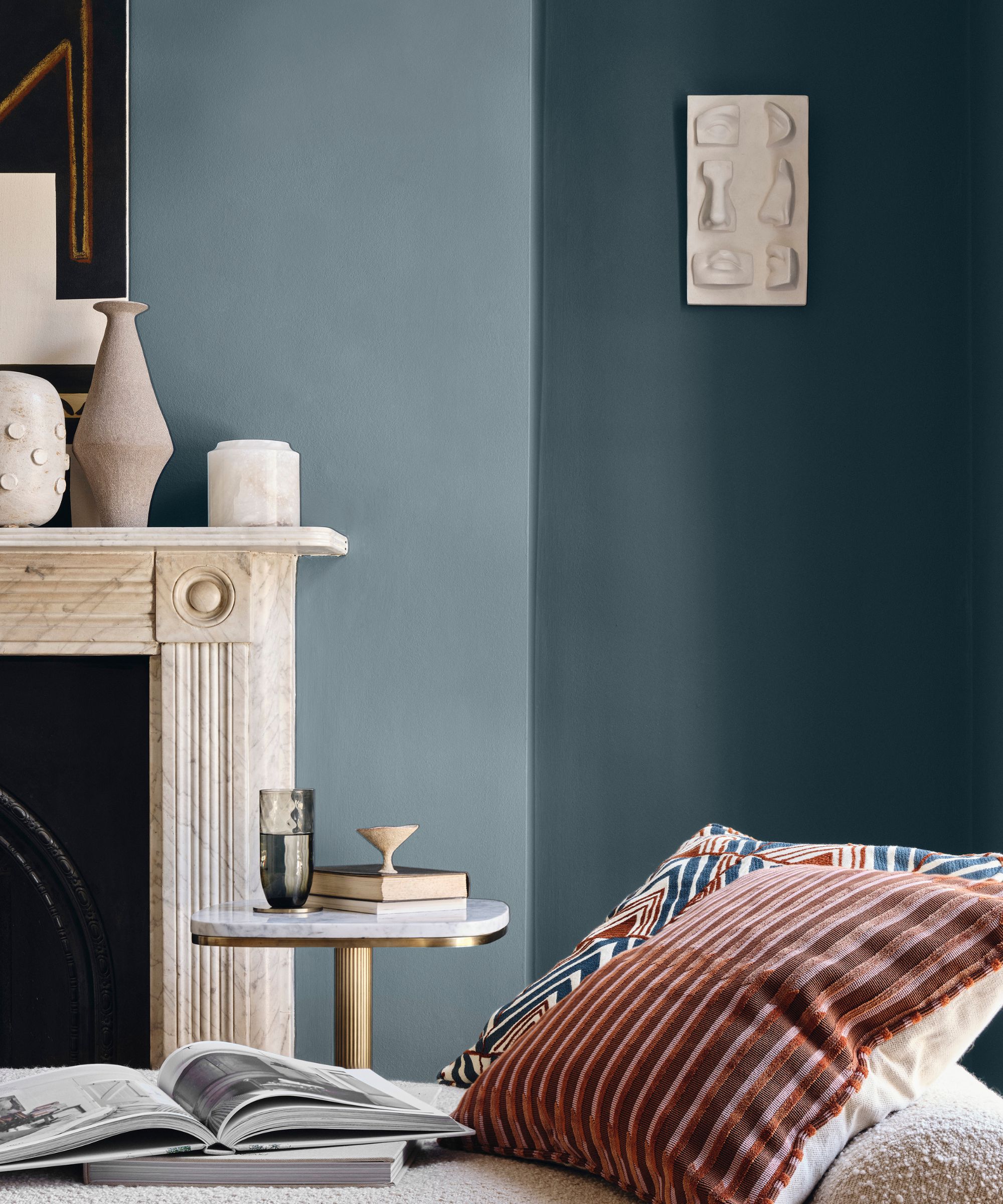
West facing living rooms are darker and cooler in the mornings but then warm up in the late afternoon and early evening. The light that’s available in the afternoon tends to have an orangey glow that feels sumptuous and warming.
Most people tend to spend the majority of their time in the living room in the afternoon and evening, with the exception of the weekends. Therefore, you need to decide whether or not you want to embrace the evening light or try to balance it out with a cooler and darker color.
Ayten explains that ‘west-facing spaces love calming shades like soft pinks or blues as they work well throughout the duration of the day. Or, you could always opt for a color like bold navy that has a cooler undertone to tone down the afternoon glow.'
Whatever route you choose to go down, be mindful that any color will manipulate and change throughout the day so it’s a wise idea to use a paint sample and check how it looks at different times of the day to make sure it matches your expectations.
There are many preconceptions about how you should decorate a living room depending on which direction it faces. But, the key is to make sure the color not only works for the orientation of the room but for your personal preference and what type of vibe and aesthetic you'd like to create.
Avoid making costly mistakes by testing out the paint color first and painting different areas of your living room. Adopt an even more planned out approach by creating your very own living room mood board and place it in the corner of your living room to see how your desired paint color or colors, fabrics, and textures work together.







